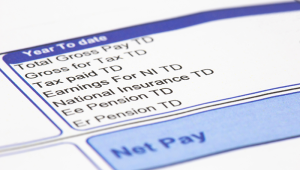15 October 2004
'One is the loneliest number' goes the song behind Unison's latest TV recruitment campaign – the message being that workers are stronger if they stand united than if they act alone.
So it was a relief to the union's bosses that delegates at a special health conference on October 7 upheld staffside unity and followed other major unions in recommending the Agenda for Change pay proposals to their membership.
Lead negotiators had issued stark warnings that rejection of the deal would do nothing to dismantle the NHS's existing complex web of pay spines – leaving many staff on low pay, long hours and staring into an uncertain future.
Appealing to delegates to support Agenda for Change, Karen Jennings, head of health at Unison, said that while nurse, midwife and pharmacist prescribing had smashed the boundaries between the health professions, this was not reflected in pay. She said the complicated pay structures continued to hold up change and were 'stopping the delivery of good patient care'.
Speaking after the vote, Jennings said: 'Agenda for Change is crucial to the modernisation of the NHS. It's an equal pay system that's designed to cut out the inequalities and demarcations that are rife in the current antiquated pay system. It is simply not an option to carry on with a system that is failing to recognise or properly reward staff for the work they do.'
Unison members have until November 5 to decide whether or not to endorse the package. The deal put before the 450,000 health members this week as ballot papers went out is the product of a seven-year-long series of negotiations and renegotiations. It creates a single nine-point pay spine for all directly employed NHS staff except doctors, dentists and senior managers. It guarantees a minimum wage of £11,135 per annum and, for the first time, a personal training and development plan for all workers.
The decision on whether to proceed now rests with the thousands of union members who work in the NHS. Verdicts are also due over the next few weeks from the 80,000 Amicus members and the 12,000 in the T&G.
Other professional groups, including the Royal College of Nursing and the Chartered Society of Physiotherapy, gave Agenda for Change their approval last year. In Whitehall, work is progressing ahead of the national rollout on December 1. A booklet explaining the changes has been distributed to the NHS's 1 million non-clinical staff, and health minister John Hutton has provided an extra £30m to help trusts implement the deal.
He is pleased to have the unions on board. 'Working with unions, we have made significant progress to implement a pay system that ensures NHS staff are paid fairly for the work they do… I am particularly pleased that the minimum wage has been raised, as this will go directly to help the staff who need it most,' he said.
But it might not all be plain sailing. Negotiations have been hard-fought and Unison still has not secured agreement on one of its key aims: a 35-hour working week for all staff. But the union's leaders have promised to go on fighting for this, and the strident voices of disgruntled members will be a constant reminder.
At last week's conference, a vociferous but significant minority voted to reject the package amid concerns that it would leave some 75,000 workers with worse pay and conditions.
Those working in administrative and clerical jobs are thought likely to be the biggest losers and there are objections that Agenda for Change does not reflect the contribution they make. Although pay is protected in the short term, there are also fears that the funds needed for this have to come from cuts in jobs and services.
One delegate, Rob McKay, described Agenda for Change as a form of 'industrial Darwinism'. He went on: 'Not one member of the union is expendable. Not one deserves to be sacrificed. One loser is one loser too many.'
Another delegate said: 'How can we vote for a deal that means a cut in pay and a rise in working hours? We've had some concessions. We could get more. We need to force the government back to the negotiating table.'
But the Department of Health remains sanguine. A spokeswoman was not fazed by the prospect of Unison turning its back on Agenda for Change. 'We'll cross that bridge when we come to it. But we're not expecting a no vote,' she said.
PFoct2004



















